I am a compulsive cookbook collector, so when a publisher contacts me with the offer for a free book I rarely turn it down, so many thanks to The Quarto Group for this beautiful volume.
Mountain Berries & Desert Spice: Sweet Inspiration from the Hunza Valley to the Arabian Sea is a vegetarian book of Pakistani sweets. Author Sumayya Usmani is clearly enthusiastic about sharing her country's varied sweets and dessert dishes, and her descriptions of the sights and smells of each region are deliciously heady. Make a few recipes and you will feel intoxicated by them too.
The book takes its readers through seven chapters of recipes exploring sweets from across Pakistan. This comes in the form of a lesson in both culture and geography, with importance placed on how these affect the foods of each region. Many of the recipes do use dairy, but some either offer vegan options (e.g. almond milk instead of full fat milk), while others would be easily veganisable using common sense (e.g. vegan margarine instead of butter and Sweet Freedom instead of honey).
Although many of the recipes are straightforward, using few ingredients and a minimal time commitment, others are more involved. The recipes are easy to follow, with clear instructions and photos to give you an idea of what you're aiming for. Usmani urges her readers to be undeterred by complicated-sounding recipes, to engage in the process with an understanding that cooking with love and care has therapeutic value. This is a sentiment I appreciate; I can't begin to recount how many times I have had a terrible day that is recovered by spending a few hours in the kitchen.
The chapter on key ingredients is brief, which is good news to those who are annoyed with too many difficult to source ingredients used just once or twice in a cookbook. Most should be sourceable from a South Asian grocery or market, but quite a few of the ingredients are available at reasonable sized supermarkets as well. Also worth noting is the fact that recipe measurements are provided in both imperial and metric units.
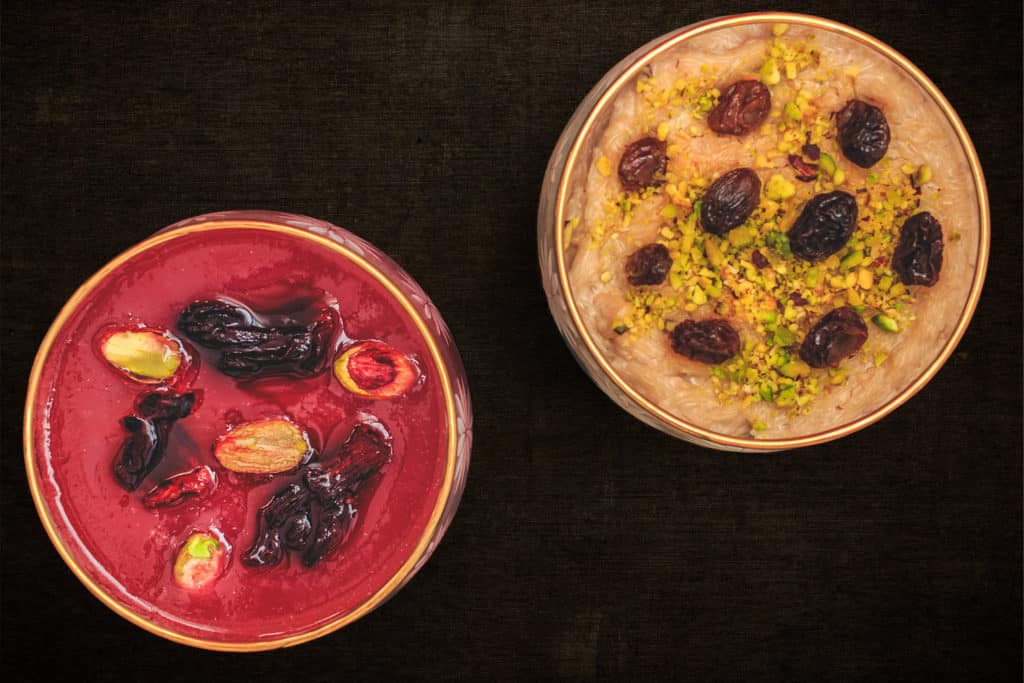
The book begins with a breakfast chapter that includes a mix of grain based porridges, pastries and breads. The sweet vermicelli pudding, made with fresh high-fat almond milk, is not only an ideal breakfast but it also takes just 10 or 15 minutes to put together. There is a sublime hint of smokiness from the black cardamom that, when combined with sweet bursts of flavour from raisins, is heavenly.
I went a little off piste with the pomegranate, rose, and cardamom halva jelly (recipe below) because I forgot to reserve some pomegranate seeds to decorate the jelly, and I had no rose petals or gold leaf. Instead I topped the dessert with a few pieces of rehydrated dried hibiscus flower and a few pistachios, both of which worked well with the sweet and tart pomegranate-based dessert. The jelly is light and refreshing, and would be a wonderful palate cleanser after a heavy meal.
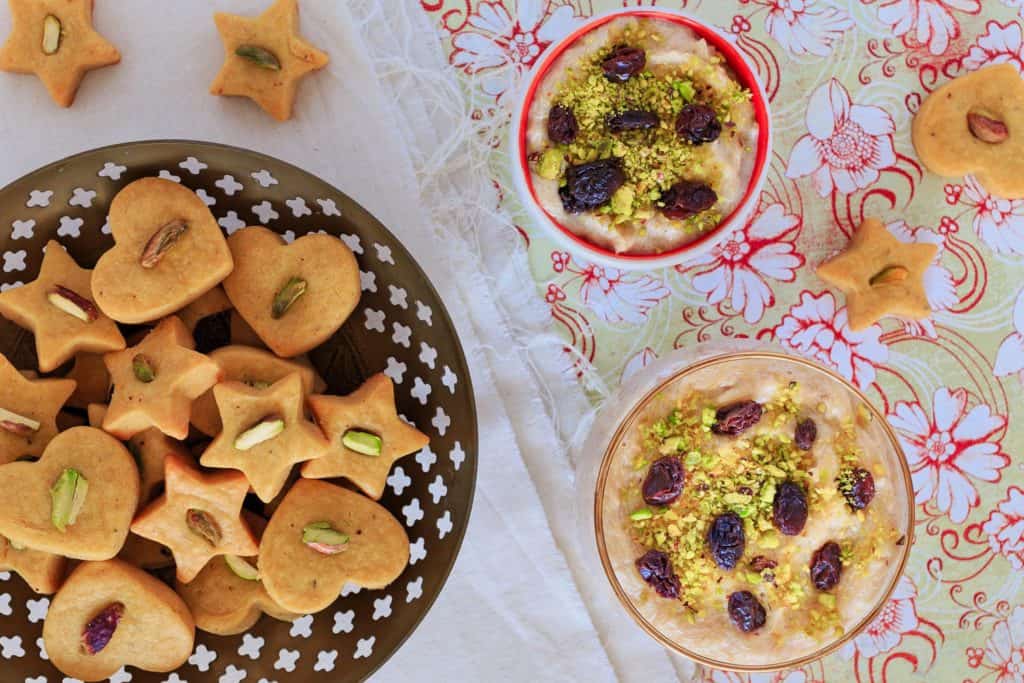
Nan-e Nokhochi, clove-flavoured chickpea flour shortbread cookies, are quite possibly the most moorish little biccies to ever come out of my not-very-used oven (the wok is my spirit... kitchenware?). I met a couple of friends for a pub dinner recently, bringing along a dozen or so of these to send home with them, but instead I left the pub with two empty ziploc baggies. They too couldn't stop popping these chewy, aromatic cookies into their gobs (I only shared because I ate 50 in one go the day before).
I found the suggested yield to be way off – I got more than double the volume out of the recipe – but who, I ask, has ever registered a complaint about too many cookies? No one. And if you have, well, I'm sure there is a professional who can help you to improve your judgment. Let's never be friends until you come to terms with your disordered thinking.
The recipes in this book scream for friends and cups of tea, and so I have plenty of other recipes bookmarked to try by myself because everything mostly looks too good to share. Also I live in Crawley, and judging by the look of cringeworthiness that I know passed across every reader's face upon reading this fact, you understand that not many people visit me at home.
Other recipes on my to do list:
- badami kulcha, an almond and cardamom meringue that I want to try with aquafaba instead of eggs.
- mulberry and cherry fruit leather because despite living in Mordor there is a mulberry tree out back!
- all of the rice pudding recipes because rice pudding. Extreme comfort.
- pistachio chickie, or pistachio brittle, scented with rose petals.
- and pretty much everything else, because most of it is easily veganisable and looks delicious.
Mountain Berries & Desert Spice hits shelves on April 6, 2017.
Pomegranate, Rose and Cardamom Halva Jelly
This is more of a jelly-like dessert than a traditional halva, but it is inspired by the flourishing pomegranate trees that grow in areas of Pakistan – those lush green leaves that hide away a shiny fruit heavy with jewel-like seeds. This dish is best served in small pretty glasses, decorated with gold leaf, either as a light finish to a heavy meal, or a palate cleanser between courses.
- Preparation 40 minutes + chilling
- Serves 4-6
- Cooking 10 minutes
- 5 pomegranates, seeds only
- 250ml water
- 2 cardamom pods, seeds removed and finely ground
- 120g caster(superfine) sugar
- 1 teaspoon agar agar powder
- 1 teaspoon rose water or kewra (screwpine extract)
- gold leaf
- pomegranate seeds
- Blitz the pomegranate seeds in a blender or juicer, then pour it through a sieve to remove the seeds.
- Pour the juice into a bowl, allow to settle, then add the water, finely ground cardamom and sugar. Pour the mixture into a saucepan and heat gently. Do not let the juice come to the boil, keep it on a simmer, and slowly add the agar agar, stirring until dissolved.
- Add the rose water or kewra and turn off the heat. Allow to cool for 2 minutes so it doesn’t crack the serving glasses. (Agar-based jelly can set without refrigeration so don’t leave it any longer.) Pour the jelly into glasses and chill in the fridge for around 30 minutes, until set.
- To serve, decorate with gold leaf and pomegranate seeds.
Recipe extracted from Mountain Berries and Desert Spice by Sumayya Usmani, published by Frances Lincoln, an imprint of The Quarto Group

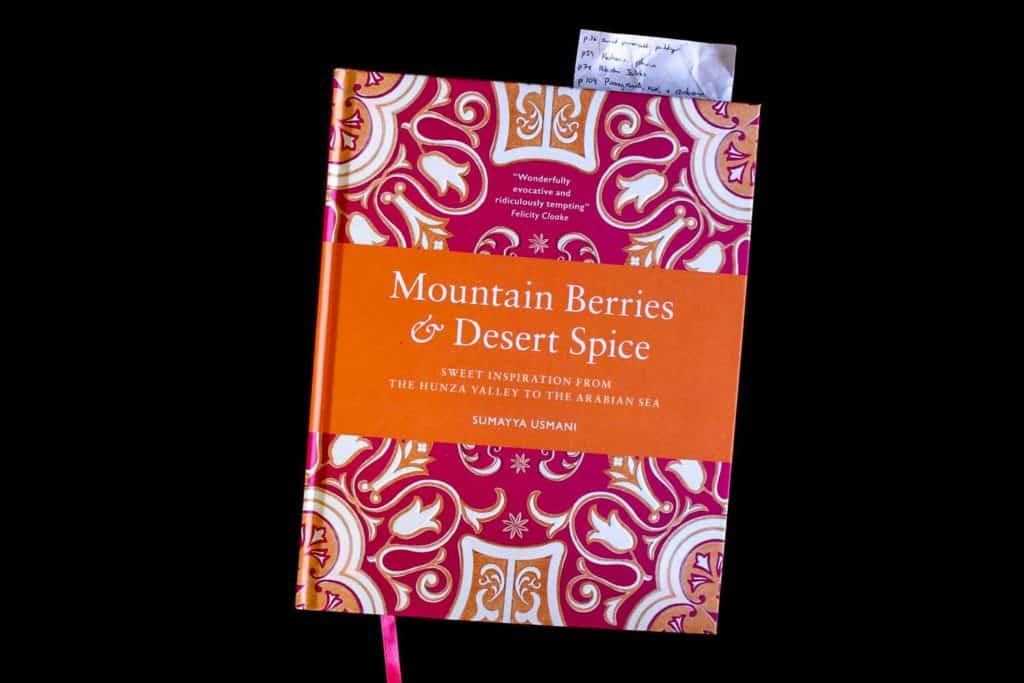
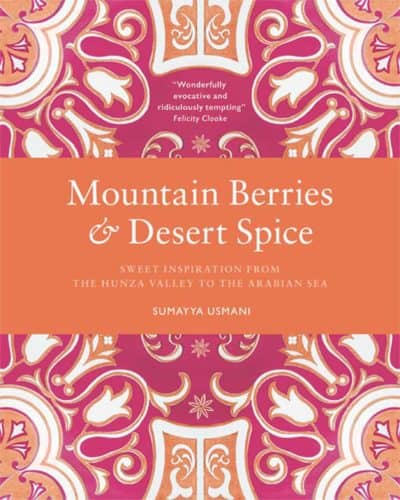
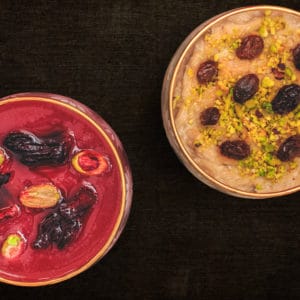

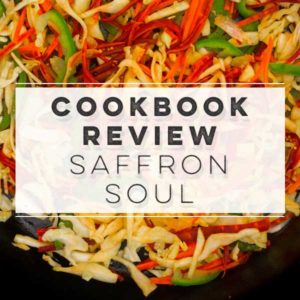
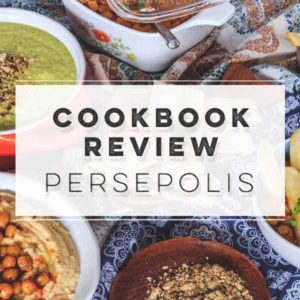

Leave a Reply